
Pulau Wakatobi: A Paradise of Marine Wonders
Pulau Wakatobi, located in Southeast Sulawesi, Indonesia, is a hidden gem known for its spectacular marine biodiversity. The island is part of the Wakatobi National Park, which is recognized as one of the premier diving and snorkeling spots in the world. The crystal-clear waters surrounding the island are teeming with vibrant coral reefs and an abundance of marine life, making it a haven for underwater enthusiasts. Apart from its underwater attractions, Pulau Wakatobi offers stunning white-sand beaches and tranquil settings perfect for relaxing and soaking up the sun. The island's natural beauty is complemented by its warm and welcoming local communities, who are eager to share their rich culture and traditions with visitors. Whether you're exploring traditional villages or indulging in the local cuisine, Pulau Wakatobi provides an authentic and enriching travel experience. For those looking to reconnect with nature, Pulau Wakatobi boasts lush landscapes and unspoiled environments. The island is also a great place for eco-tourism, with many initiatives in place to protect its pristine surroundings. From eco-lodges to guided tours, visitors can enjoy the natural splendor of Pulau Wakatobi while contributing to its preservation. This destination offers a perfect blend of adventure, relaxation, and cultural immersion, making it an ideal getaway for discerning travelers.
Local tips in Pulau Wakatobi
- Best time to visit is during the dry season from April to November for optimal diving conditions.
- Bring reef-safe sunscreen to protect the delicate marine ecosystem.
- Try local dishes such as ikan bakar (grilled fish) and kaledo (oxtail soup) for an authentic taste of the region.
- Respect local customs and dress modestly when visiting villages.
- Cash is preferred in many places, so ensure you have enough local currency on hand.
Pulau Wakatobi: A Paradise of Marine Wonders
Pulau Wakatobi, located in Southeast Sulawesi, Indonesia, is a hidden gem known for its spectacular marine biodiversity. The island is part of the Wakatobi National Park, which is recognized as one of the premier diving and snorkeling spots in the world. The crystal-clear waters surrounding the island are teeming with vibrant coral reefs and an abundance of marine life, making it a haven for underwater enthusiasts. Apart from its underwater attractions, Pulau Wakatobi offers stunning white-sand beaches and tranquil settings perfect for relaxing and soaking up the sun. The island's natural beauty is complemented by its warm and welcoming local communities, who are eager to share their rich culture and traditions with visitors. Whether you're exploring traditional villages or indulging in the local cuisine, Pulau Wakatobi provides an authentic and enriching travel experience. For those looking to reconnect with nature, Pulau Wakatobi boasts lush landscapes and unspoiled environments. The island is also a great place for eco-tourism, with many initiatives in place to protect its pristine surroundings. From eco-lodges to guided tours, visitors can enjoy the natural splendor of Pulau Wakatobi while contributing to its preservation. This destination offers a perfect blend of adventure, relaxation, and cultural immersion, making it an ideal getaway for discerning travelers.
When is the best time to go to Pulau Wakatobi?
Iconic landmarks you can’t miss
Sulawesi
Explore Sulawesi Island, Indonesia's gem, where diverse cultures meet stunning landscapes and unparalleled marine adventures await.
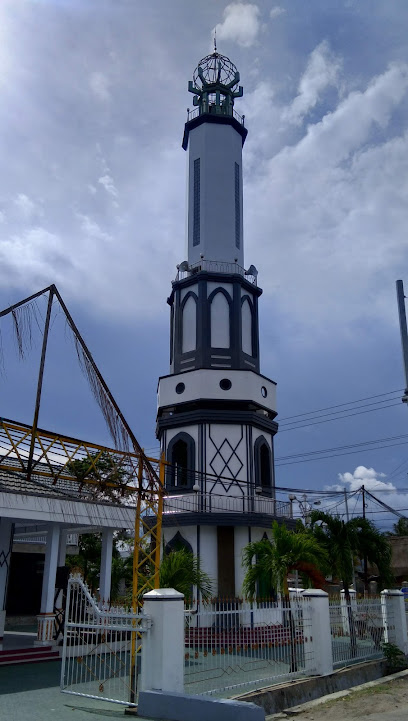
Wakatobi National Park
Discover the breathtaking beauty of Wakatobi National Park, a hidden gem in Southeast Sulawesi, known for its extraordinary coral reefs and rich biodiversity.
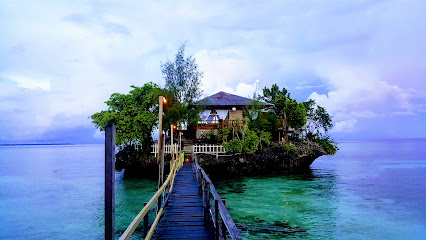
Goa Air Kontamale
Experience the tranquil beauty of Goa Air Kontamale, a breathtaking freshwater cave nestled in Wakatobi, Southeast Sulawesi, perfect for nature lovers.
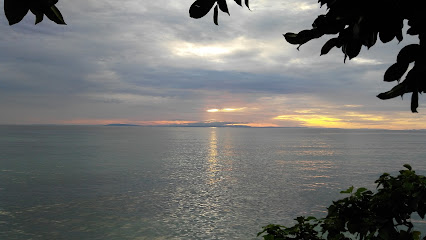
Wangiwangi Island
Wangiwangi Island in Southeast Sulawesi: A tropical paradise of stunning beaches, vibrant coral reefs, and rich cultural experiences awaits your discovery.
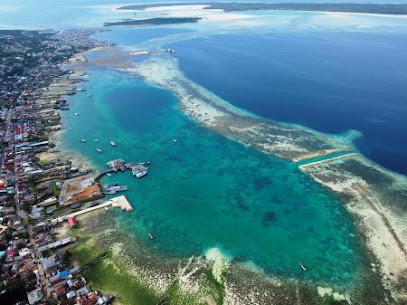
Wasabinua Hotel & Dive Resort
Discover the perfect blend of seafood dining, relaxation, and diving adventures at Wasabinua Hotel & Dive Resort in Wakatobi.
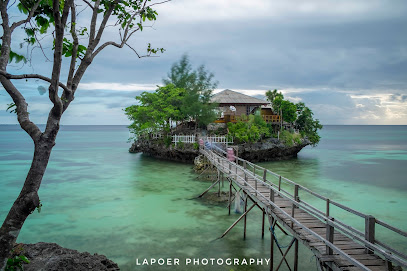
Wakatobi Dive Resort
Experience the ultimate diving retreat at Wakatobi Dive Resort, a sanctuary for divers and nature enthusiasts in Indonesia's breathtaking marine paradise.
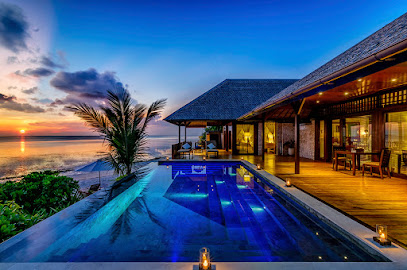
Wakatobi Dive Adventure
Experience unparalleled underwater adventures at Wakatobi Dive Adventure, Indonesia's premier scuba tour agency in a breathtaking marine paradise.
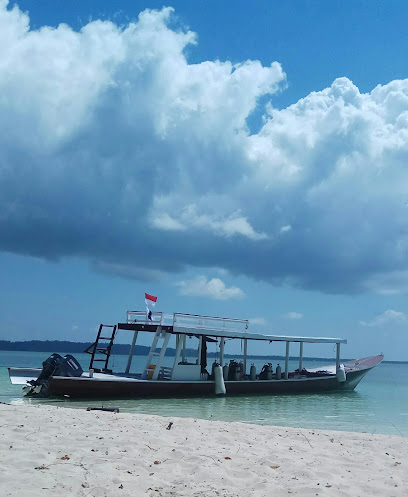
Tomea Island
Explore the untouched beauty of Tomea Island, a serene paradise in South East Sulawesi, perfect for nature lovers and adventure seekers alike.
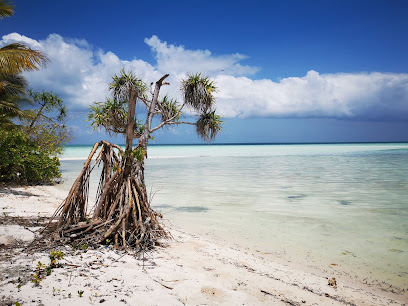
Binongko Island
Discover the untouched beauty and vibrant marine life of Binongko Island, a hidden gem in Southeast Sulawesi's Wakatobi Regency.
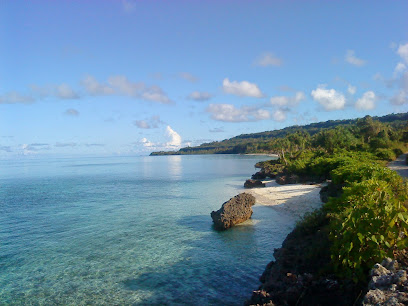
Balai Taman Nasional Wakatobi
Discover Wakatobi National Park, Indonesia's hidden gem with breathtaking marine life, pristine beaches, and rich cultural heritage.
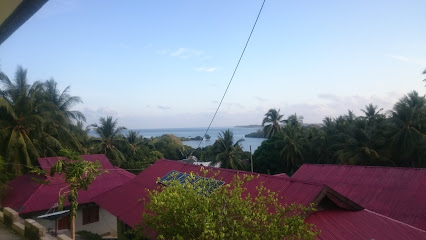
Kaledupa Island
Experience the untouched beauty of Kaledupa Island in Wakatobi Regency, where pristine beaches meet vibrant coral reefs and rich cultural heritage.
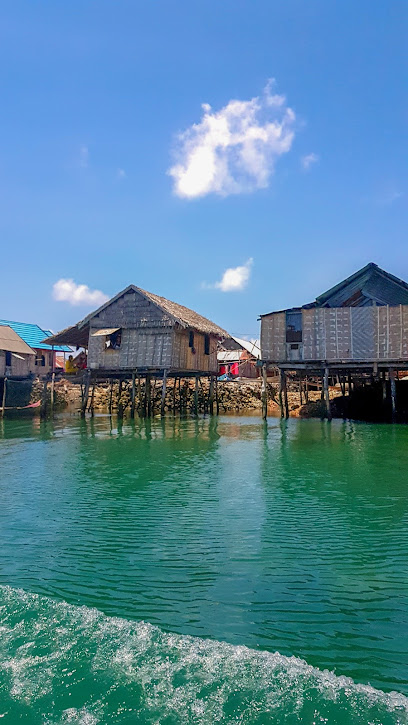
Kambode Island
Experience the natural beauty and vibrant marine life of Kambode Island in Wakatobi Regency, a serene getaway for beach lovers and adventure seekers alike.
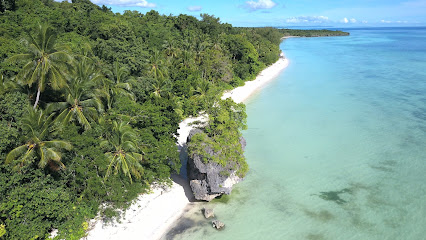
Puncak Toliamba
Explore the enchanting beauty of Puncak Toliamba, a serene park in Wakatobi Regency, perfect for nature lovers and relaxation seekers alike.
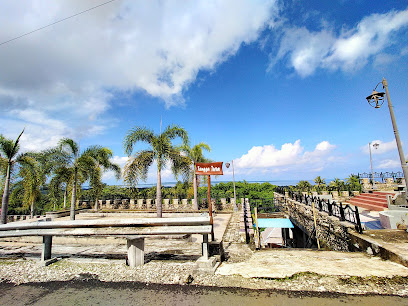
Desa Wisata Kahianga (Dewi Kahyangan)
Experience the vibrant culture and stunning landscapes of Desa Wisata Kahianga, a hidden gem in Southeast Sulawesi's Wakatobi Regency.
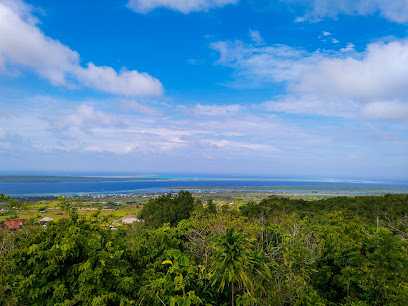
Runduma Island
Discover the untouched charm of Runduma Island, a serene paradise in Southeast Sulawesi known for its stunning beaches and vibrant marine life.
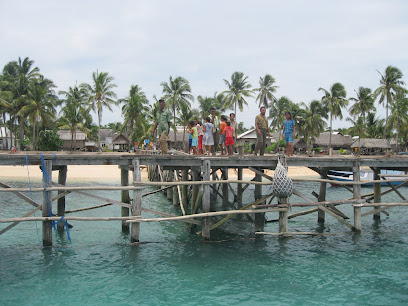
Unmissable attractions to see
Wakatobi National Park
Discover the breathtaking beauty of Wakatobi National Park, a diver's paradise with stunning coral reefs and vibrant marine life in Southeast Sulawesi, Indonesia.
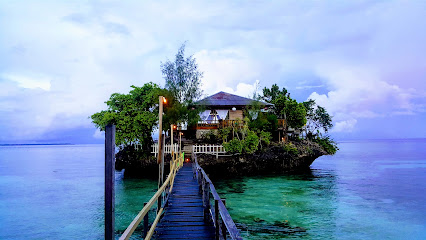
Pantai Kamali, Baubau
Experience the vibrant atmosphere and stunning coastal views at Pantai Kamali, Baubau’s premier amusement park destination.
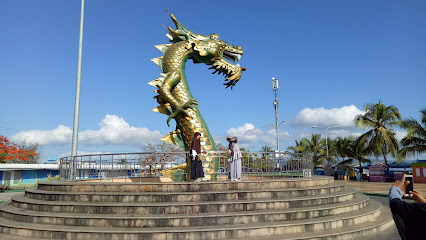
Goa Air Kontamale
Explore the tranquility of Goa Air Kontamale, a stunning freshwater cave in Wakatobi Regency, where nature and culture unite in breathtaking beauty.
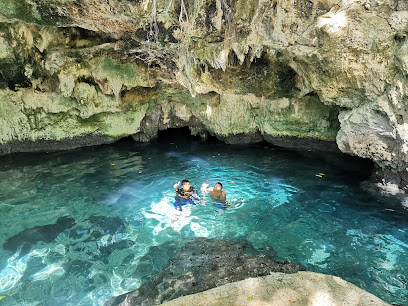
Pantai Cemara
Discover the enchanting beauty of Pantai Cemara: a pristine beach in Wakatobi with white sands, clear waters, and vibrant marine life.
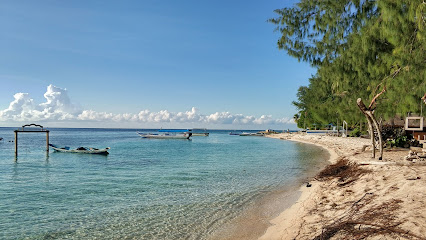
Taman Nasional Rawa Aopa Watumohai
Discover the pristine beauty and rich biodiversity of Taman Nasional Rawa Aopa Watumohai, a captivating national park in South East Sulawesi, Indonesia.
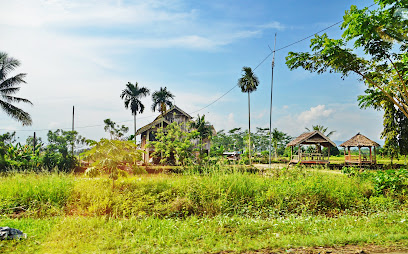
Wangiwangi Island
Discover the serene beauty and rich cultural heritage of Wangiwangi Island, a hidden gem in South East Sulawesi with stunning beaches and vibrant marine life.
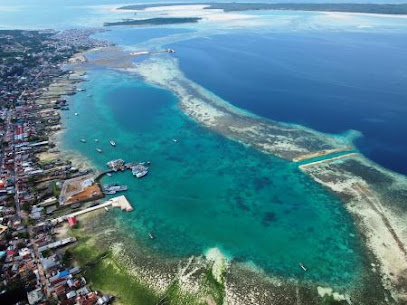
Pantai Wambuliga
Experience the captivating beauty of Pantai Wambuliga, a serene beach destination in Wakatobi Regency, Southeast Sulawesi, perfect for relaxation and adventure.
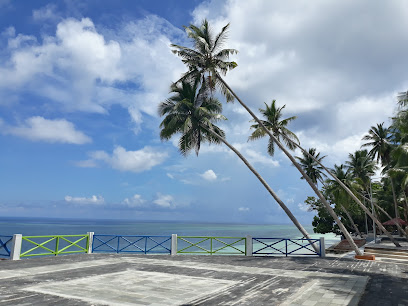
Wakatobi Dive Adventure
Experience the vibrant underwater world at Wakatobi Dive Adventure, where unforgettable diving meets unparalleled natural beauty in Southeast Sulawesi.
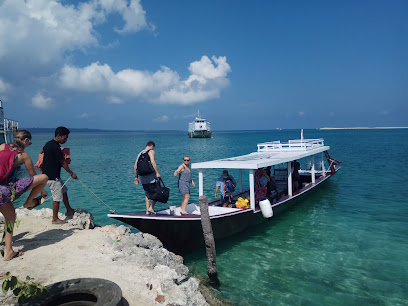
Tomea Island
Tomea Island in South East Sulawesi offers pristine beaches, vibrant marine life, and rich local culture, perfect for adventure and relaxation.
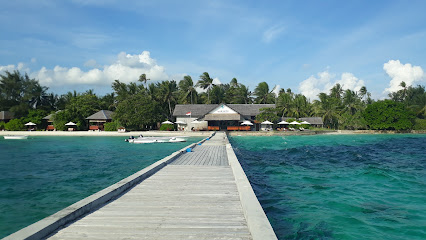
Taman Budaya Wakatobi
Explore the rich cultural heritage of Wakatobi at Taman Budaya Wakatobi, a vibrant park featuring traditional performances and local art.
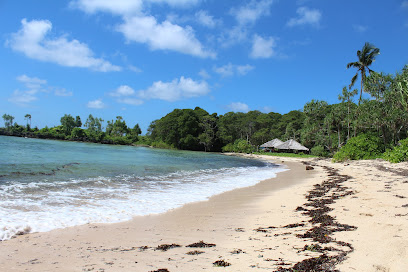
Pantai Lakota Tomia
Experience the tranquil beauty of Pantai Lakota Tomia, a pristine beach in Wakatobi, Indonesia, perfect for relaxation and adventure.
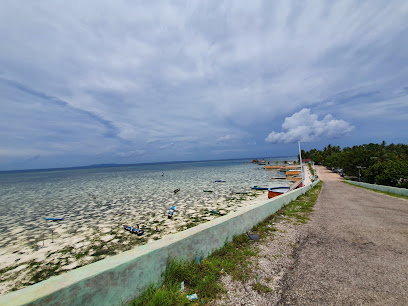
Mola Village
Experience the tranquil beauty and cultural richness of Mola Village in Wakatobi, a hidden paradise for adventure and relaxation seekers.
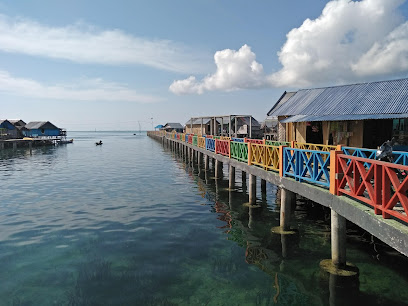
Koguna Beach
Experience the serene beauty of Koguna Beach in South East Sulawesi, where crystal-clear waters meet soft sandy shores for an unforgettable tropical getaway.
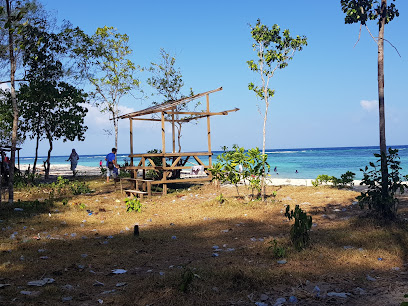
Binongko Island
Explore Binongko Island, a hidden gem in Wakatobi Regency, featuring stunning beaches, vibrant marine life, and rich cultural experiences.
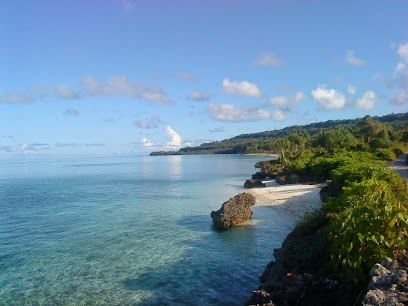
Balai Taman Nasional Wakatobi
Discover the untouched paradise of Balai Taman Nasional Wakatobi, where vibrant marine life and stunning landscapes await your exploration.
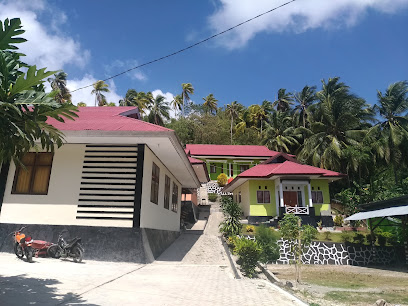
Essential places to dine
Wakatobi National Park
Explore the vibrant underwater ecosystems and stunning landscapes of Wakatobi National Park – a true paradise for nature lovers and adventure seekers.
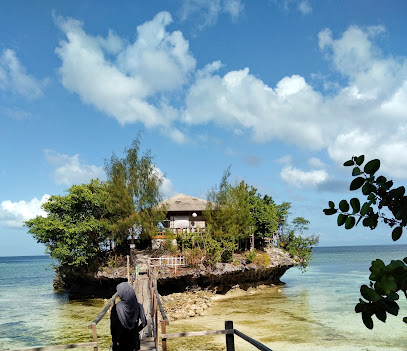
Wakatobi Patuno Resort
Experience unparalleled luxury at Wakatobi Patuno Resort - your gateway to Southeast Sulawesi's stunning beaches and vibrant marine life.
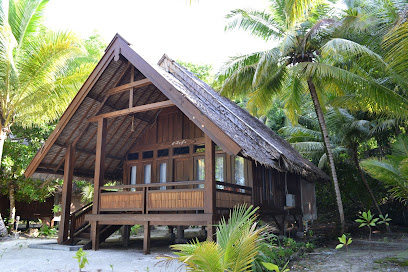
Goa Air Kontamale
Explore Goa Air Kontamale: A Hidden Gem of Freshwater Caves and Tropical Beauty in Wakatobi Regency.
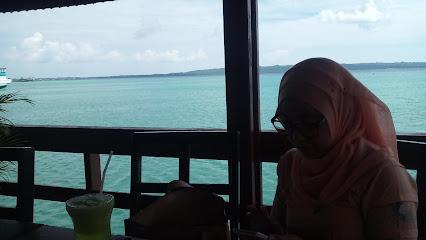
Ikan Bakar Wakatobi
Experience authentic Indonesian cuisine at Ikan Bakar Wakatobi - where fresh grilled fish meets vibrant local flavors in Balikpapan.
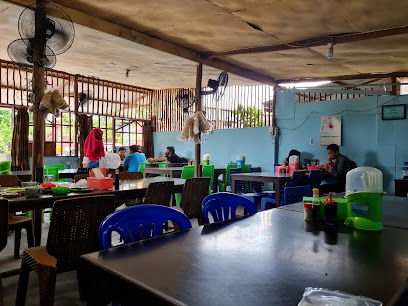
Wasabinua Hotel & Dive Resort
Experience unparalleled seafood dining and unforgettable diving adventures at Wasabinua Hotel & Dive Resort in Wakatobi Regency.
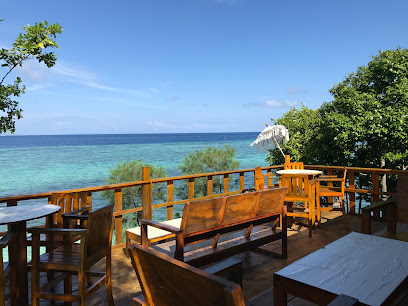
Pantai Wambuliga
Discover Pantai Wambuliga: A serene beach paradise in South East Sulawesi's Wakatobi Regency with pristine sands and vibrant marine life.
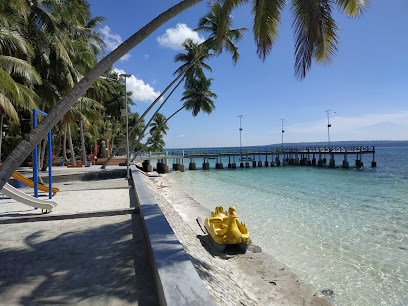
Wakatobi Dive Resort
Experience luxury and adventure at Wakatobi Dive Resort - your gateway to Indonesia's stunning underwater paradise.
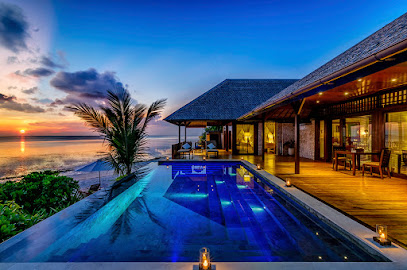
Warung Makan D'Bantea
Experience authentic South East Sulawesi cuisine at Warung Makan D'Bantea - a must-visit restaurant in Wakatobi Regency offering delicious local flavors.
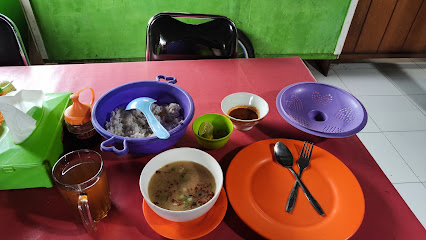
Restaurant WISATA
Experience authentic Indonesian cuisine at Restaurant WISATA in Wakatobi Regency—where every dish tells a story of flavor and tradition.
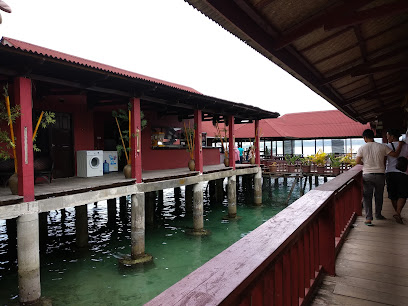
Ampupu beach resort
Discover culinary delights at Ampupu Beach Resort while enjoying breathtaking ocean views in Wakatobi Regency.
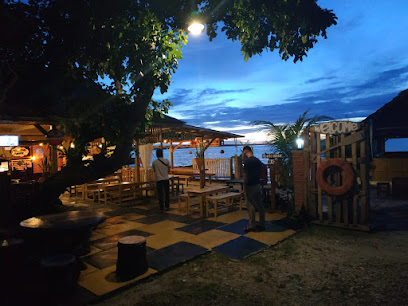
RedDoorz near Lakota Beach Tomia Wakatobi
Experience tranquility at RedDoorz near Lakota Beach Tomia; your gateway to pristine beaches and vibrant marine life in Wakatobi.
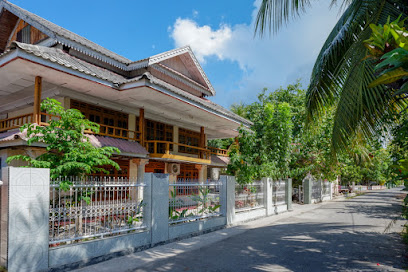
Kasilapa Bay Homestay
Discover tranquility at Kasilapa Bay Homestay in Wakatobi—where comfort meets local charm amidst breathtaking natural beauty.
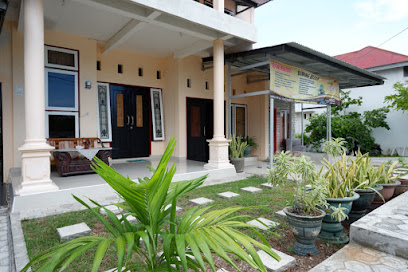
Double Peace
Experience tranquility at Double Peace, Wakatobi's favorite coffee shop offering local brews and cozy vibes amidst stunning landscapes.
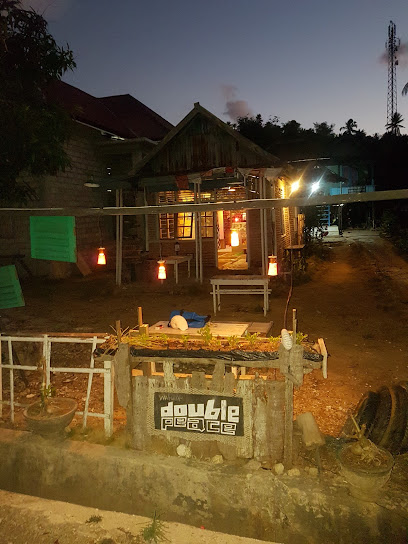
Artha Homestay
Experience authentic island living at Artha Homestay on Tomia Island – your gateway to Wakatobi's breathtaking beauty.

Rumah Makan Wakatobi
Experience the rich flavors of Padang cuisine at Rumah Makan Wakatobi - A family-friendly destination for authentic Indonesian dining.
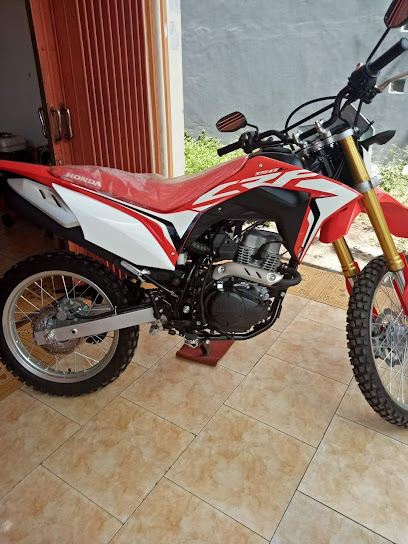
Markets, malls and hidden boutiques
Wakatobi National Park
Discover the breathtaking underwater world of Wakatobi National Park, Indonesia—home to stunning coral reefs and diverse marine life in a pristine paradise.
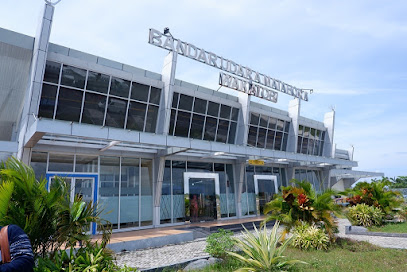
Cinemaxx Lippo Plaza Buton
Experience the latest films in comfort at Cinemaxx Lippo Plaza Buton, the top movie theater in Bau-Bau City, Southeast Sulawesi.
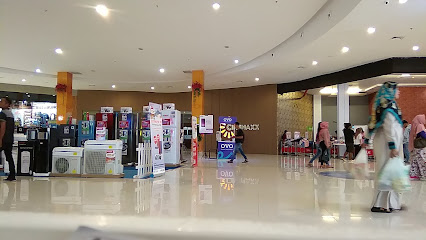
Wakatobi Patuno Resort
Experience the tranquility of Wakatobi Patuno Resort, a tropical paradise in Wangi-Wangi Island, perfect for relaxation and adventure.
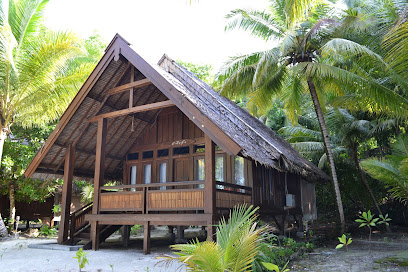
Goa Air Kontamale
Explore Goa Air Kontamale: A hidden gem of freshwater caves on Wangi-Wangi Island, perfect for nature lovers and adventure seekers alike.
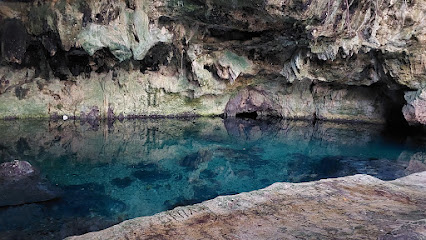
Wakatobi Dive Adventure
Discover Wakatobi Dive Adventure - Indonesia's ultimate diving destination with breathtaking coral reefs and diverse marine life, perfect for all diving enthusiasts.
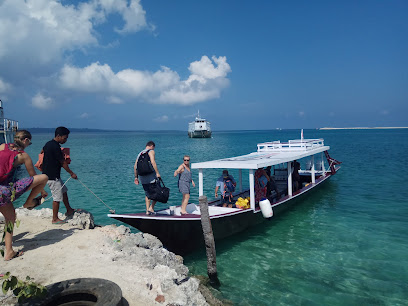
Anemo Wakatobi Souvenir
Explore Anemo Wakatobi Souvenir for unique handcrafted treasures that embody the rich culture and natural beauty of Wakatobi Island.
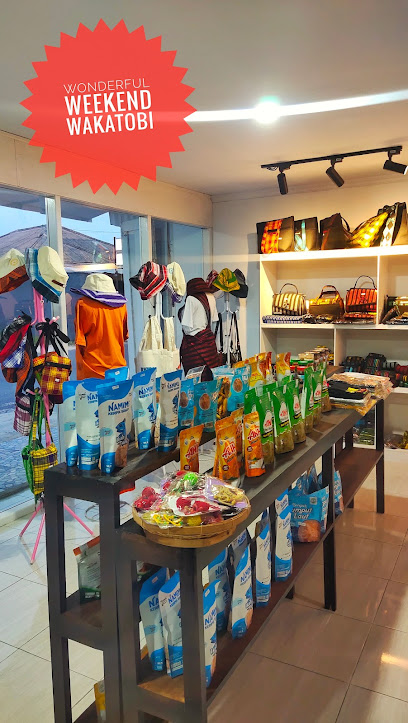
Puncak Toliamba
Explore the breathtaking landscapes and tranquil atmosphere of Puncak Toliamba, a serene park in Wakatobi, South East Sulawesi, perfect for nature lovers.
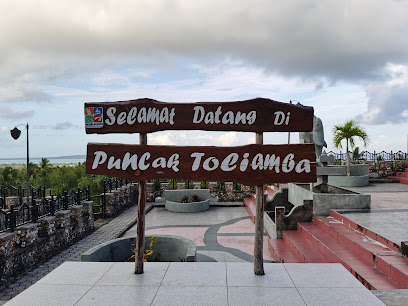
dedy photography
Experience the beauty of Wakatobi through stunning portraits at Dedy Photography, the top choice for professional photography services in Southeast Sulawesi.
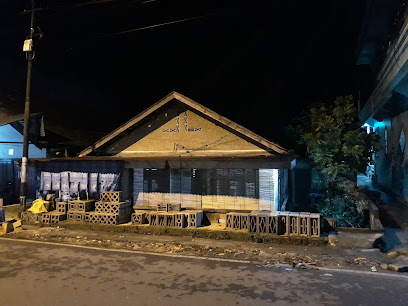
Pantai Huntete
Experience the breathtaking beauty and tranquility of Pantai Huntete, a hidden gem in Wakatobi Regency, ideal for relaxation and aquatic adventures.
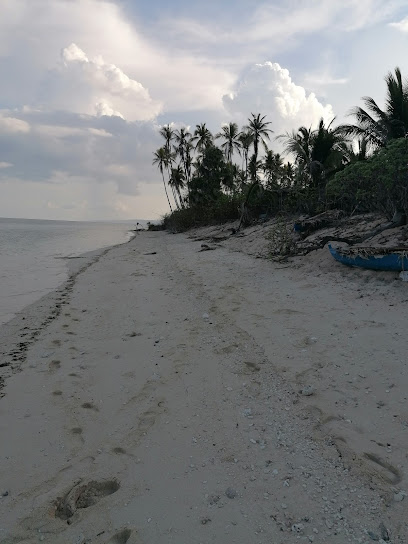
Wakatobi Tourism & Creative Economy Authority
Explore Wakatobi, Indonesia's hidden jewel, renowned for its stunning marine life, rich culture, and breathtaking landscapes.
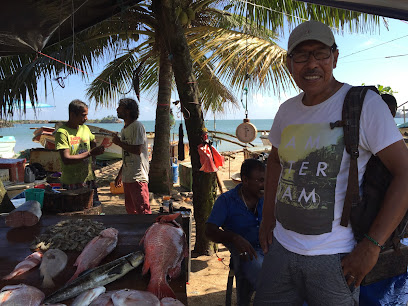
Pantai Hondue
Experience the tranquility and beauty of Pantai Hondue, a hidden gem in Wakatobi known for its pristine beaches and vibrant marine life.
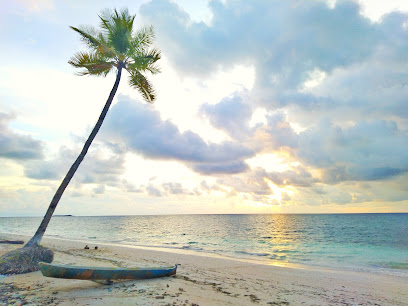
ITC Wakatobi
Explore cutting-edge technology at ITC Wakatobi, your ultimate destination for computers and electronics in the stunning Wakatobi archipelago.
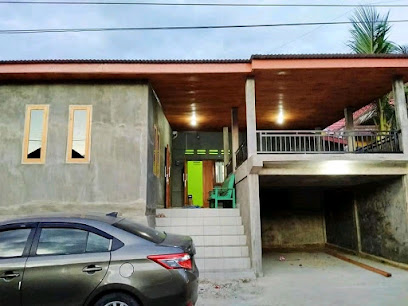
Double Peace
Discover the tranquil oasis of Double Peace, a premier coffee shop in Wakatobi, where local culture meets exceptional brews.
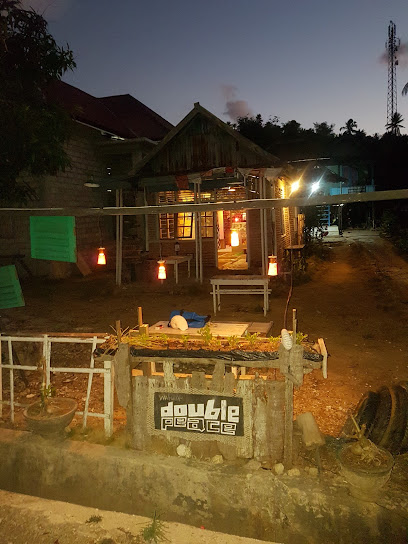
Wowine Wakatobi Kreatif (W2K)
Explore the vibrant world of local handicrafts at Wowine Wakatobi Kreatif, a craft store celebrating Sulawesi's rich artistic heritage.
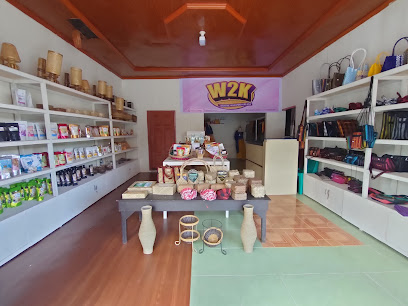
Sulawesi Dive Trek
Explore the breathtaking underwater world at Sulawesi Dive Trek, a premier diving destination in Southeast Sulawesi, perfect for all levels of divers.
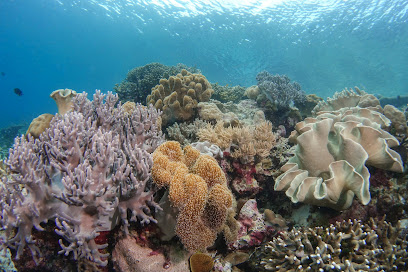
Essential bars & hidden hideouts
Wakatobi Patuno Resort
Experience the beauty and tranquility of Wakatobi Patuno Resort, a luxurious retreat on Wangi-Wangi Island, Indonesia, perfect for relaxation and adventure.

Goa Air Kontamale
Explore the serene freshwater caves of Goa Air Kontamale in Wangi-Wangi, Sulawesi - a hidden gem for nature lovers and adventure seekers.
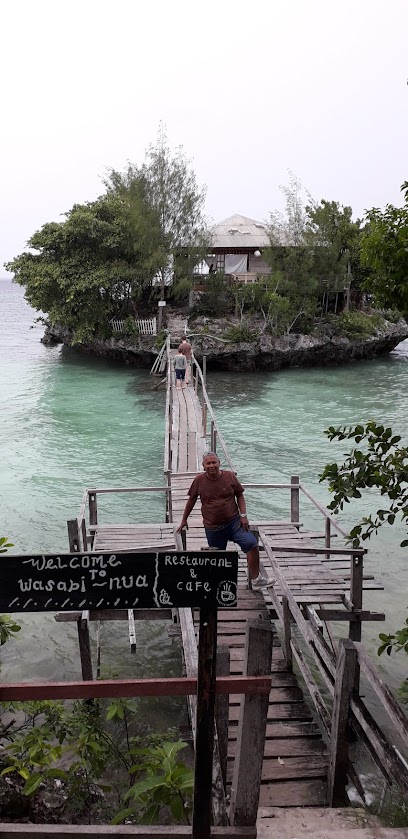
Wasabinua Hotel & Dive Resort
Experience the flavors of the sea and the thrill of diving at Wasabinua Hotel & Dive Resort in Wakatobi, a paradise for foodies and adventurers alike.
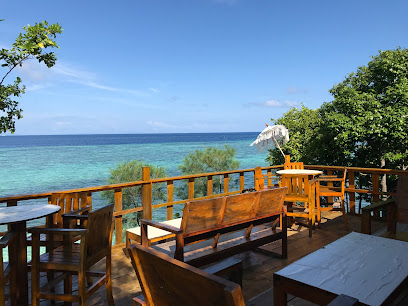
Wakatobi Dive Resort
Experience unparalleled diving and relaxation at Wakatobi Dive Resort, the ultimate tropical paradise in Indonesia's stunning Wakatobi Regency.
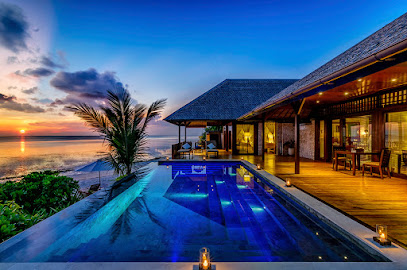
Warung Makan D'Bantea
Experience the essence of Indonesian cuisine at Warung Makan D'Bantea, a local gem in Wakatobi Regency, known for its authentic flavors and welcoming atmosphere.
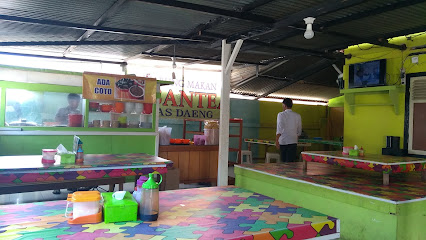
Restaurant WISATA
Experience the flavors of Sulawesi at Restaurant WISATA, where local ingredients meet culinary tradition in a welcoming atmosphere.
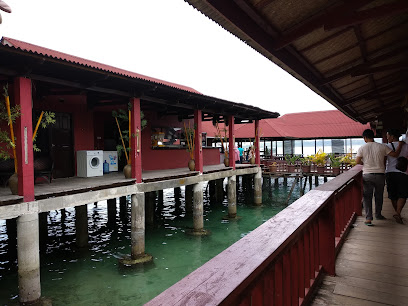
Marind Dive Eco Resort
Experience eco-friendly luxury at Marind Dive Eco Resort, where adventure meets tranquility in the heart of Wakatobi's natural paradise.

Kedai Winalu.id ( Popcorn dan Minuman by Namimo Wakatobi)
Discover Kedai Winalu.id in Wakatobi, where delicious popcorn and refreshing drinks create the perfect coffee shop experience in Southeast Sulawesi.
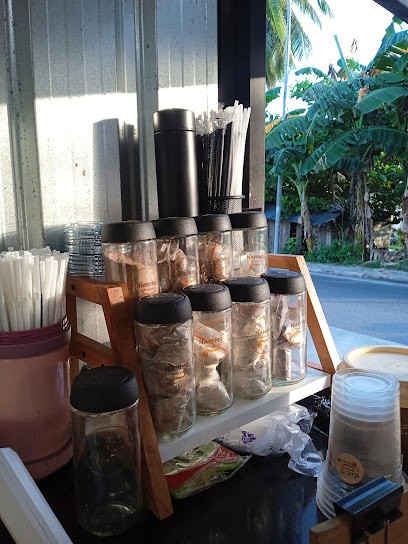
Baepullu wakatobi
Discover the refreshing tastes of Baepullu Wakatobi, where vibrant juices meet the warm hospitality of Indonesia's tropical paradise.
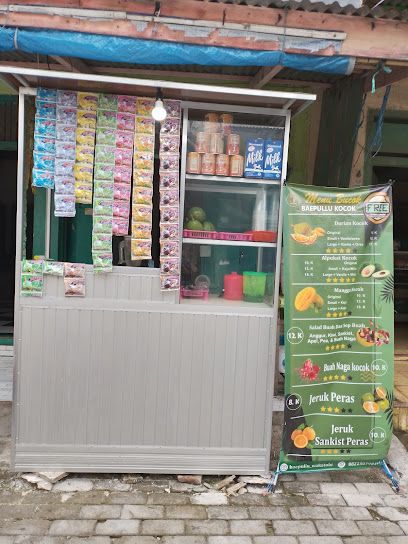
Local Phrases about Pulau Wakatobi
-
- HelloHalo
[ha-loh] - GoodbyeSelamat tinggal
[suh-lah-maht ting-gahl] - YesYa
[yah] - NoTidak
[tee-dahk] - Please/You're welcomeSilakan
[see-lah-kahn] - Thank youTerima kasih
[teh-ree-mah kah-see] - Excuse me/SorryMaaf
[mah-ahf] - How are you?Apa kabar?
[ah-pah kah-bahr] - Fine. And you?Baik. Dan kamu?
[bah-eek dahn kah-moo] - Do you speak English?Apakah kamu bisa berbicara bahasa Inggris?
[ah-pah-kah kah-moo bee-sah buhr-bee-chah bah-hah-sah eeng-grees] - I don't understandSaya tidak mengerti
[sah-yah tee-dahk muhn-gehr-tee]
- HelloHalo
-
- I'd like to see the menu, pleaseSaya ingin melihat menu, tolong
[sah-yah een-geen muh-lee-haht meh-noo toh-lohng] - I don't eat meatSaya tidak makan daging
[sah-yah tee-dahk mah-kahn dye-eeng] - Cheers!Selamat minum!
[suh-lah-maht mee-noom] - I would like to pay, pleaseSaya ingin membayar, tolong
[sah-yah een-geen muhm-bah-yahr toh-lohng]
- I'd like to see the menu, pleaseSaya ingin melihat menu, tolong
-
- Help!Tolong!
[toh-lohng] - Go away!Pergi!
[pehr-gee] - Call the Police!Panggil polisi!
[pahng-geel poh-lee-see] - Call a doctor!Panggil dokter!
[pahng-geel dohk-tehr] - I'm lostSaya tersesat
[sah-yah tuhr-suh-saht] - I'm illSaya sakit
[sah-yah sah-keet]
- Help!Tolong!
-
- I'd like to buy...Saya ingin membeli...
[sah-yah een-geen muhm-beh-lee] - I'm just lookingSaya hanya melihat-lihat
[sah-yah hahn-yah meh-lee-haht-lee-haht] - How much is it?Berapa harganya?
[buh-rah-pah hahr-gahn-yah] - That's too expensiveItu terlalu mahal
[ee-too tuhr-lah-loo mah-hahl] - Can you lower the price?Bisa kurangi harganya?
[bee-sah koo-rahn-gee hahr-gahn-yah]
- I'd like to buy...Saya ingin membeli...
-
- What time is it?Jam berapa sekarang?
[jahm buh-rah-pah suh-kah-rahn] - It's one o'clockSekarang pukul satu
[suh-kah-rahn poo-kool sah-too] - Half past (10)Setengah (sepuluh)
[seh-tehn-gah (suh-poo-loo)] - MorningPagi
[pah-gee] - AfternoonSore
[soh-reh] - EveningMalam
[mah-lahm] - YesterdayKemarin
[keh-mah-reen] - TodayHari ini
[hah-ree ee-nee] - TomorrowBesok
[beh-sohk] - 1Satu
[sah-too] - 2Dua
[doo-ah] - 3Tiga
[tee-gah] - 4Empat
[uhm-paht] - 5Lima
[lee-mah] - 6Enam
[eh-nahm] - 7Tujuh
[too-joo] - 8Delapan
[deh-lah-pahn] - 9Sembilan
[suhm-bee-lahn] - 10Sepuluh
[suh-poo-loo]
- What time is it?Jam berapa sekarang?
-
- Where's a/the...?Dimana ada/ada...
[dee-mah-nah ah-dah/ah-dah] - What's the address?Apa alamatnya?
[ah-pah ah-lah-mah-tnyah] - Can you show me (on the map)?Bisa tunjukkan ke saya (di peta)?
[bee-sah toon-jook-kahn keh sah-yah (dee peh-tah)] - When's the next (bus)?Kapan yang berikutnya (bis)?
[kah-pahn yahng buh-roo-keet-nyah (bees)] - A ticket (to ....)Satu tiket (ke ....)
[sah-too tee-keht (keh ....)]
- Where's a/the...?Dimana ada/ada...
History of Pulau Wakatobi
-
Pulau Wakatobi, located in Southeast Sulawesi, Indonesia, has a rich history of early human settlement and indigenous cultures. The islands were originally inhabited by the Bajo people, also known as sea gypsies, who were renowned for their seafaring skills and unique maritime culture. The Bajo people lived in stilt houses over the water and relied heavily on the sea for their livelihood.
-
In the 14th century, the Buton Kingdom extended its influence over the Wakatobi islands. The Butonese introduced new agricultural practices and trade routes, which brought prosperity to the region. The cultural and political impact of the Buton Kingdom is still evident today in the local customs, language, and traditional architecture.
-
During the 16th and 17th centuries, European colonial powers, including the Portuguese and the Dutch, arrived in the region, attracted by the lucrative spice trade. The Wakatobi islands became an important stopover for ships transporting spices such as cloves and nutmeg. The colonial presence brought new technologies and trade opportunities but also led to conflicts and changes in the local power dynamics.
-
During World War II, the Wakatobi islands were occupied by Japanese forces. The occupation had a significant impact on the local population, with many people being conscripted into labor and facing harsh conditions. After the war, the islands were liberated, and the experience of occupation left a lasting mark on the community's collective memory.
-
Following the end of World War II, Indonesia declared its independence from Dutch colonial rule in 1945. The Wakatobi islands became part of the newly formed Republic of Indonesia. The post-independence period saw significant development efforts, including infrastructure improvements and the promotion of tourism, to boost the local economy.
-
In 1996, the Indonesian government established the Wakatobi National Park, recognizing the region's unique marine biodiversity. The park covers an area of 1.39 million hectares and includes some of the world's most pristine coral reefs. The establishment of the national park has helped to protect the marine environment and promote sustainable tourism, attracting divers and nature enthusiasts from around the globe.
-
In 2012, Wakatobi was designated as a UNESCO Biosphere Reserve, further highlighting its global ecological significance. This designation aims to balance conservation efforts with sustainable development and involves local communities in preserving the natural and cultural heritage of the region. The recognition by UNESCO has brought international attention to Wakatobi and its efforts to conserve its unique ecosystems.
Pulau Wakatobi Essentials
-
Pulau Wakatobi is located in Southeast Sulawesi, Indonesia. The most convenient way to reach Wakatobi is by flying to Matahora Airport on Wangi-Wangi Island, the largest island in the Wakatobi group. There are flights from major Indonesian cities such as Jakarta, Surabaya, and Makassar to Matahora Airport, often with a layover in Kendari. Alternatively, travelers can take a ferry from Kendari to Wangi-Wangi Island, which takes approximately 10-12 hours.
-
Within the Wakatobi Islands, transportation options include local taxis, motorbike rentals, and bicycle rentals. Public transport is limited, so renting a motorbike or bicycle is a popular choice for tourists to explore the islands at their own pace. For inter-island travel, local boats and speedboats are available. It's advisable to book these in advance, especially during peak tourist seasons.
-
The official currency in Wakatobi is the Indonesian Rupiah (IDR). Credit cards are accepted in some hotels and larger restaurants, but it is advisable to carry cash, especially for smaller establishments and local markets. ATMs are available on Wangi-Wangi Island, but it is recommended to withdraw sufficient cash in larger cities like Kendari before traveling to the islands.
-
Wakatobi is generally a safe destination for tourists. However, like any travel destination, it is advisable to take standard precautions. Avoid walking alone at night in unfamiliar areas and keep an eye on your belongings in crowded places. There are no specific high-crime areas targeting tourists, but it is always best to stay vigilant and aware of your surroundings.
-
In case of an emergency, dial 112 for immediate assistance. The local police station and medical facilities are available on Wangi-Wangi Island. It is recommended to have travel insurance that covers medical emergencies. For minor health issues, there are pharmacies in the main towns where you can purchase over-the-counter medications.
-
Fashion: Do dress modestly, especially when visiting religious sites. Avoid wearing revealing clothing. Religion: Do respect local customs and traditions. Always remove your shoes when entering mosques and other religious sites. Public Transport: Do be respectful and give up your seat to elderly passengers. Don’t eat or drink on public transport. Greetings: Do greet people with a smile and a slight bow of the head. A handshake is also common, but remember to use your right hand. Eating & Drinking: Do try local delicacies and accept food offerings graciously. Don’t refuse hospitality, as it is considered impolite.
-
To experience Wakatobi like a local, visit the traditional markets where you can buy fresh produce and local handicrafts. Engage with the locals, as they are often friendly and willing to share stories about their culture and way of life. Don't miss the opportunity to explore the marine biodiversity by diving or snorkeling in the Wakatobi National Park, renowned for its vibrant coral reefs and marine life. Participate in local festivals and events to get a deeper understanding of the local culture and traditions.
Trending Landmarks in Pulau Wakatobi
-
Sulawesi
-
Wakatobi National Park
-
Goa Air Kontamale
-
Wangiwangi Island
-
Wasabinua Hotel & Dive Resort
-
Wakatobi Dive Resort
-
Wakatobi Dive Adventure
-
Tomea Island
-
Binongko Island
-
Balai Taman Nasional Wakatobi
-
Kaledupa Island
-
Kambode Island
-
Puncak Toliamba
-
Desa Wisata Kahianga (Dewi Kahyangan)
-
Runduma Island
Nearby Cities to Pulau Wakatobi
-
Things To Do in Gleno
-
Things To Do in Ermera
-
Things To Do in Aileu
-
Things To Do in Bobonaro
-
Things To Do in Same
-
Things To Do in Baucau
-
Things To Do in Suai
-
Things To Do in Lospalos
-
Things To Do in Makassar
-
Things To Do in Manado
-
Things To Do in Balikpapan
-
Things To Do in Bali
-
Things To Do in Darwin
-
Things To Do in Surabaya
-
Things To Do in Zamboanga City








